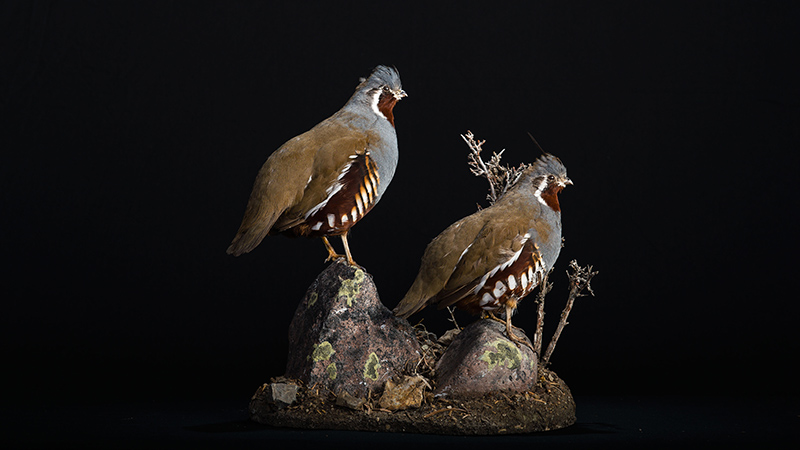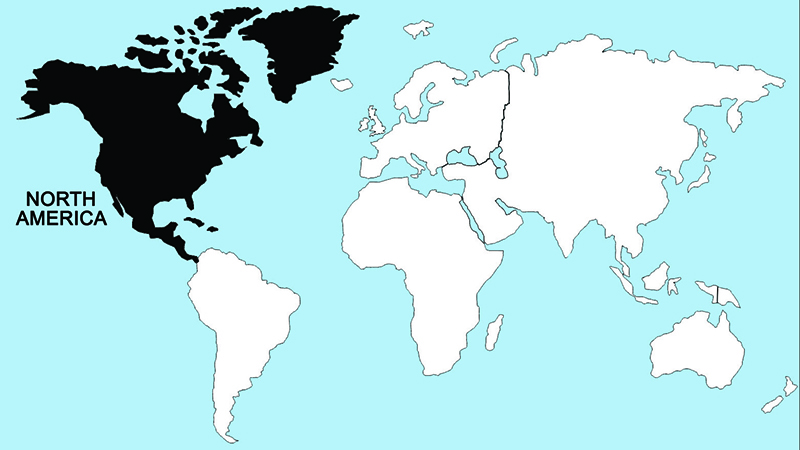Mountain Quail

The mountain quail is widespread in western North America, from Vancouver Island to Baja California. Throughout the year, covey sizes of mountain quail are generally small, up to ten, or not much bigger than a single family plus a few adults that were unsuccessful in nesting. Mate selection begins in early spring, while the coveys are still intact. At that time unmated males select whistling posts, from which they utter repeated plu-ark calls, these notes simply proclaim the presence of an unmated male, and thus serve more to attract available females than to ward off other males. Mated pairs become antagonistic toward other quails, and soon spread out over the available nesting habitat.
The nests are usually well concealed, often under fallen pine branches, amid weeds or shrubs at the base of large trees, beside large, shaded rocks, or in masses of shrubby vegetation. Clutch sizes of initial nesting attempts average about 9–10 eggs, and incubation lasts 24–25 days. The male takes an active role in nest and brood defense. Should the female be killed, males apparently will take over incubation, and sometimes broods are seen being tended by only a single bird of either sex. Although renesting after a nest failure is typical, there is no evidence that two broods are normally raised in a single season. By late summer the well-grown broods, supplemented by lone birds or unsuccessful nesters, move gradually to lower elevations.
Regions Birds Are Found

Collection Location & Year
U.S. - Montana 1993
Taxonomy
| Order | Galliformes |
|---|---|
| Family | Odontophoridae |
| Species | Oreortyx |
| Genus | picta |
Gender
Female & Male
References
- Leopold, A. S. 1969. Wildlife of Mexico: The Game Birds and Mammals. Berkeley, CA: University of California Press.
- Johnsgard, P. A. 1973. Grouse and Quails of North America. Lincoln, NE: Univ. of Nebraska Press.
- del Hoyo, J. A. Elliot, and J. Sargatal, eds. 1994. Handbook of Birds of the World. Vol. 2 (New World Vultures to Guineafowl). Barcelona, Spain: Lynx Editions.